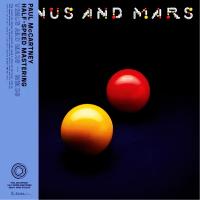- they chose this method over regular-speed cut from tape?
- how this compares to the UK original?
Wings’ Smash-Hit 1975 Chart-Topper Venus and Mars Soars Anew With New Half-Speed-Mastered 180g 50th Anniversary Edition LP
Worth the wait! We’re happy to report that Venus and Mars — Wings’ May 1975 arena-rocking, No. 1-charting, platinum-selling smash-hit album — has just received the official Abbey Road Studios half-speed-mastered deluxe “sonic spa” treatment in celebration of its 50th Anniversary this year, having been officially released as a 180g single LP by MPL/Capitol/UMe on March 21, 2025.
Unlike several of Paul McCartney’s prior solo LPs and his early Wings band releases, Venus and Mars was made under relatively uncompromised, professionally consistent recording conditions. With its initial mid-1975 release following the arguably compromised sound of the nonetheless mega-hit that was November 1973’s Band on the Run, Venus and Mars delivered a very clear vision for how a fully formed Wings album should sound. Its music was clean, bright, confident, and then-modern, with just enough reference to his old ’60s band (you know — The Beatles!) to bridge the generations while gaining fresh younger fans.
Featuring big rawk music that was just right for this transitional mid-decade crossroads moment in music, Venus and Mars appeared at the tail end of glam and just before prog hit some of its own growing pains — not to mention while punk was still simmering in the ashes of The New York Dolls, all while disco-fied funk was popping up right under many musicians’ noses. Right place, right time, in other words.
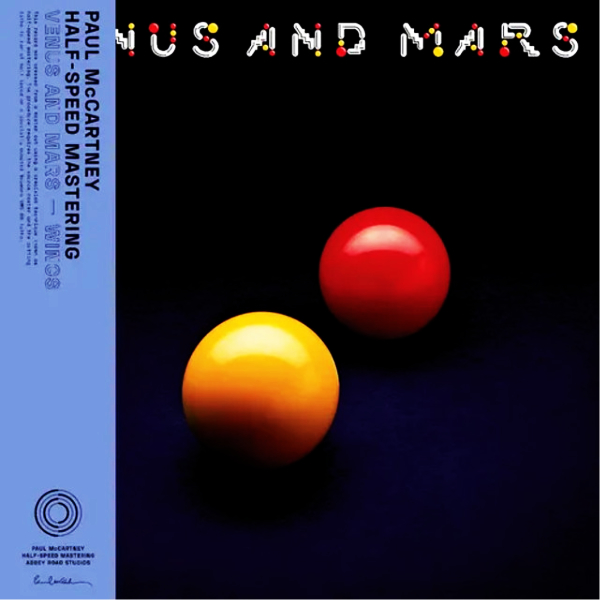
Unlike what happened with Band on the Run — an album made under some quite challenging circumstances, to say the least (look it up!) — there was no doubt much room for improvement from a production perspective with Venus and Mars. McCartney and Wings had to get this one perfectly right — and they pretty much did, delivering arguably Sir Paul’s best production since May 1971’s platinum-selling Ram (which was officially credited to Paul and Linda McCartney).
Before we lift off into the stratosphere of Venus and Mars, let’s explore the underlying DNA fueling this new reissue. From official press materials we know that “This special 50th anniversary vinyl edition was cut at half-speed using a high-resolution transfer of the original master tapes from 1975 by Miles Showell at Abbey Road Studios. The album is presented as a meticulous reproduction of the original UK pressing, with recreations of the original ‘Venus and Mars are alright tonight’ circular sticker and ‘comparative sizes of sun and planets’ bookmark sticker, and comes with two posters with photography by Aubrey Powell and Sylvia de Swaan. The iconic album artwork by Hipgnosis has been meticulously recreated and presented in a gatefold sleeve.”
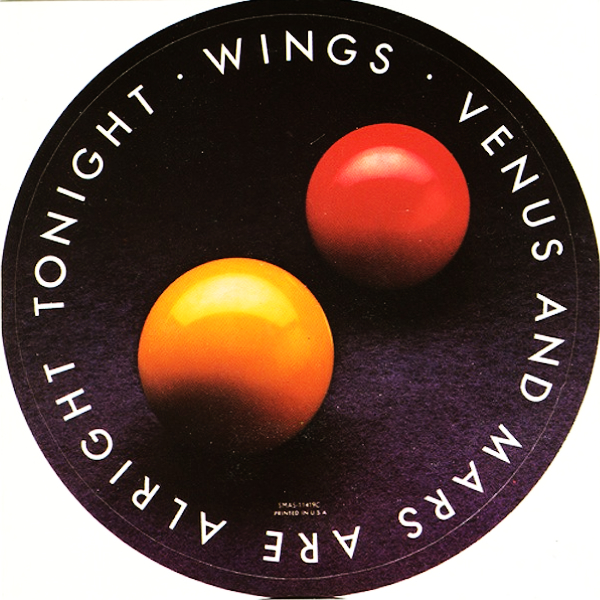
We also know from past reviews that Showell prefers working from hi-res digital files when mastering his half-speed vinyl lacquers for numerous technical reasons (which I’ll address here a bit later on). But don’t let that deter any of you hardcore analog purists out there, as Showell has indeed worked wonders via many of the half-speed-mastered editions he’s helmed for a multitude of classic artists (a decent amount of which we have reviewed here on AP).
The dark black, well-centered, and quiet 180g Venus and Mars LP was manufactured in Germany, most likely at Optimal. The SRP for this new half-speed-mastered edition is $37.99, and you can order it via the Music Direct link here, as well as via the MD link graphic below that appears ahead of the tracklisting section.
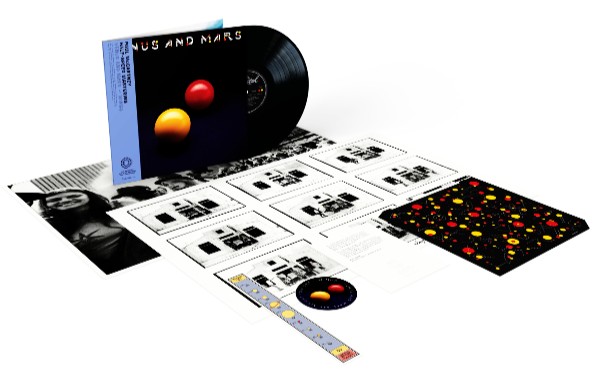
As far as the need for a reissue like this one, I think an argument can easily be made for supporting it. Like the aforementioned Band on the Run, Venus and Mars was an immensely popular release that got played a lot by teenagers of the times on the appropriately teenage-marketed audio equipment of the moment. While you can commonly find used editions of Venus and Mars out in the marketplace, they usually show evidence of wear and tear of being played on the automatic record changers of the times.
I’m dating myself here, but most kids I knew at the time were not like me, with two older brothers getting into the emergent mass-market for audiophile level gear. By the mid-’70s, we had vinyl-friendly Sansui and AR turntables around the house along with some decent amps, receivers, and speakers. One of my brothers even restored a vintage Rek-O-Kut Rondine Jr. turntable he’d been given, which had a pretty sweet early Ortofon S-shaped tonearm. (In case you were wondering, I eventually adopted both of those pieces of gear through my college years, as my brothers had since upgraded and/or moved on in their audiophile lives.)
However, most of my teenaged peers I knew back in the day in New Jersey typically had BSR or Garrard automatics — i.e., stackable record changers of one form or another that didn’t treat vinyl especially kindly. These were often housed in all-in-one receiver/tape player/record player systems popular at that time — as you can see from some of the examples shown below — often made by discount store brands like Sears, Soundesign, Emerson, Magnavox, and Lloyds. Some kids still played their records and tapes in their parents’ console furniture stereos. These were typically not well-aligned players, often outfitted with cheap cartridge/styli that were rarely well maintained by its owners.
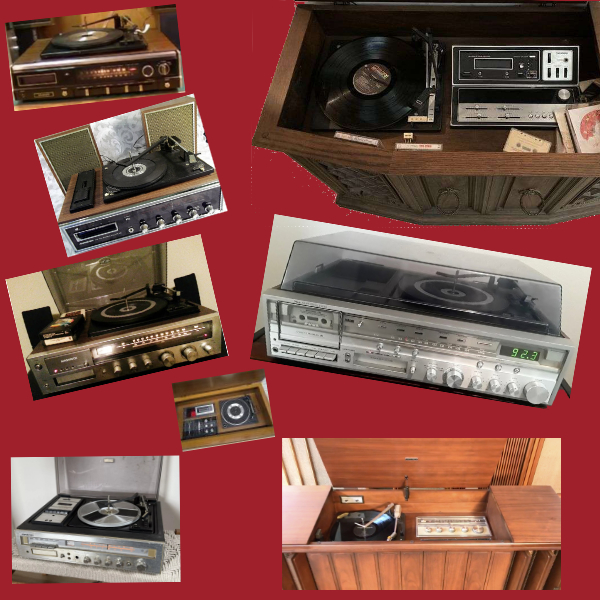
At any rate, the result for today’s collectors of vintage, audiophile-worthy vinyl is that there is more-often-than-not groove distortion audible on many used original LPs from the times, even if the record looks clean — and that, of course, makes the thrill of the hunt for a perfect original copy that much more exciting/challenging!
But don’t just take it from me, let’s let the data speak for itself. Of the 2,800-or-so vinyl copies of Venus and Mars available globally on Discogs at the time of this posting, only about 400 of them are listed as being in NM condition. Many of those listings further report having covers showing wear and tear — thus, they aren’t quite all that NM after all. I should note that 2,800 is a global-availability figure, as there were only 80 copies listed at this level here in the U.S., and 97 of them are in the UK. This relative scarcity aligns with my own personal experiences over the years, as it has taken me many, many of them to find a genuinely clean copy of Venus and Mars with all the period inserts intact — albeit interspersed with many disappointing misfire purchases along the way.

By now, you are probably wondering just how this new Abbey Road Studios half-speed-mastered 50th anniversary version of Venus and Mars sounds. In a nutshell, it’s really fine. Excellent, really.
I had to give myself a couple refresher listens to my original U.S. pressing, as it had been a while since I played it. One detail I noticed most dramatically and immediately in comparing the two versions is an increased sense of precision with regards to actual production design. I know this sounds painfully like an audiophile-cliché, but it’s a for-real thing, if you listen carefully. And I suspect this is one of the benefits of Showell’s preference for hi-res digital sourcing during his half-speed-mastering process. Here, the left and right channel panned instruments appear significantly more distinct, discreet, and tight. There is even an increased sense of three-dimensionality coming through, such as on tracks like “You Gave Me the Answer” (Side 1, Track 4), where Sir Paul’s voice seems to hover in front of you.

As is often the case with some hi-res treatments of vintage albums, little details that may have been hidden via compression on earlier editions (especially the U.S. pressings) appear more audibly, mostly for better (but sometimes for worse). For example, “Letting Go” (Side 1, Track 6) has long kind of annoyed me because of some nagging (if subtle) distortion I have always noticed amidst this punchy-but-dense production. I realize now that it may simply be some (perhaps intentional) tape over-saturation of the horn section. On this new half-speed-mastered edition of Venus and Mars, I noticed that more clearly than my old U.S. edition. This makes some sense, as I’ve been reading online that while the basic track for this song was recorded at one of the most sonically perfect studios anywhere, Abbey Road (one of three tunes on the LP that started there, in fact), additional overdubs were added at Allen Toussaint’s Sea Saint Studios in New Orleans. It’s not really a bad thing, and I’m willing to bet this take was chosen more for it capturing the correct feel for the music vs. any sense of audiophile integrity. Still, it is a curious detail I felt was worth noting here. I do also recognize that because I’ve zeroed in on this nit-picky detail so much over the years, I may well be over-listening to it to a certain extent, so please take this comment in context (and perhaps even with a grain of sonic salt, if you so desire!)
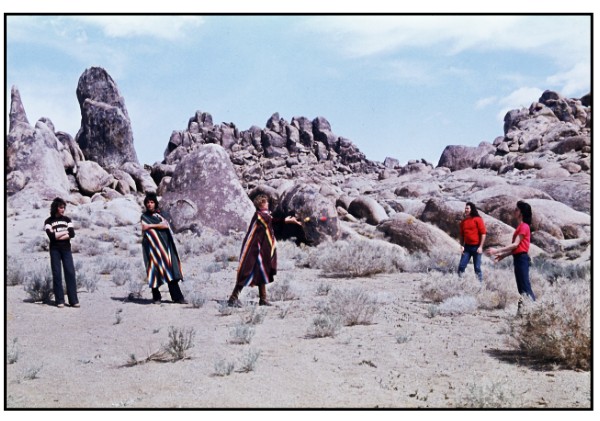
Anyhow, moving right along to our next interplanetary song-stop — tracks like mega-hit “Listen to What the Man Said” (Side 2, Track 5) sound fresh as a daisy. I’m noticing many little soundstage details popping up here that never caught my attention before on my stock U.S. pressing, such as the smack of a kiss hitting you via one side of the mix to those neat little Ringo-esque (if you will) bongo-burbles on the other. Plus, Tom Scott’s iconic saxophone solo appears remarkably vivid and alive on this version of the tune.
A song that I have often overlooked, “Venus and Mars – Reprise” (Side 2, Track 1) took on compelling new presence here, making me appreciate it more than before after hearing it on this new half-speed-mastered edition. “Medicine Jar” (Side 2, Track 3) rocks much harder on this new edition — and, honestly, I never used to really like this song very much, but now it is resonating with me more.
The epic “Call Me Back Again” (Side 2, Track 4) feels in many ways more, well, epic! This also got me thinking that this track is arguably one of the best in Macca’s strong line of bluesy post-Beatles overtures (if you will), blending elements of prior mini-epics into a unified whole. Listen for those loose echoes of tracks like “Long Haired Lady” (Side 2, Track 4 on Ram); “Tomorrow” (Side 2, Track 4 on December 1971’s Wild Life); “Medley,” with its musically haunting finale “Power Cut” section (Side 2, Track 4 on May 1973’s Red Rose Speedway<); and the always ripping “Let Me Roll It” (Side 1, Track 5 on
Semi-related aside: Upon listening to this track, I noticed a similarity to Kate Bush’s bluesy masterpiece that closes her November 1993 LP The Red Shoes, “You’re the One,” with Jeff Beck on guitar. (It appears on LP2, Side D, Track 3, on the excellent 2LP reissue/remaster from Fish People in November 2023.) This tune jams around a very similar chord sequence (on the hooky-change up) to “Call Me Back Again.” Intentional or not, I found this a pretty neat bit of generational musical synergy — and, as some of you know, I do love connecting historical dots like this! I only now wish I could hear Becko’s spectacular lead guitar solo from Kate’s tune floating in over that Wings “Back Again” track — and maybe there is a mash-up on the interwebs somewhere that does just that — but I digress!
To wrap things up, I am also quite pleased that the producers included all the original Venus and Mars album’s bonus elements, including the posters, stickers, and perhaps most significantly (for this collector, anyhow), the nice, custom-cut UK styled cardboard inner sleeve that is so much nicer than the flimsy U.S. paper version. (AP editor Mike Mettler tells me the top-right corner of his “sun and planets” sticker was partially stuck to one of the posters, but he was able extract it without any damage to either of them. Whew!)
I think if Venus and Mars might ever be made to sound significantly better still, the producers would probably have to get down into other levels of post-production restoration nitty-gritties — such as Plangent Processes, which I have reported on frequently here on AP — and also possibly even basic remixing. I suspect that sort of loving care might bring out even more detailing closer to the actual musical performances. And, for the record, I wish they would do that sort of overhaul on Band on the Run too!
In general, I think this new Abbey Road Studios 50th anniversary half-speed-mastered version of Wings’ Venus and Mars is really, really fine, and it is sounding certainly significantly better than my original U.S. pressing. As for how the ratings go, we feel Venus and Mars ranks a solid 9 for Sound, as well as a 9 for the Music.
I like this new half-speed-mastered version of Venus and Mars a whole bunch. In fact, I like it so much that I’ll be keeping it as an upgrade over my original U.S. pressing, which is probably the best compliment I can offer. Listen to what the man said, indeed. . .
Mark Smotroff is an avid vinyl collector who has also worked in marketing communications for decades. He has reviewed music for AudiophileReview.com, among others, and you can see more of his impressive C.V. at LinkedIn.
WINGS
Side 1
Side 2
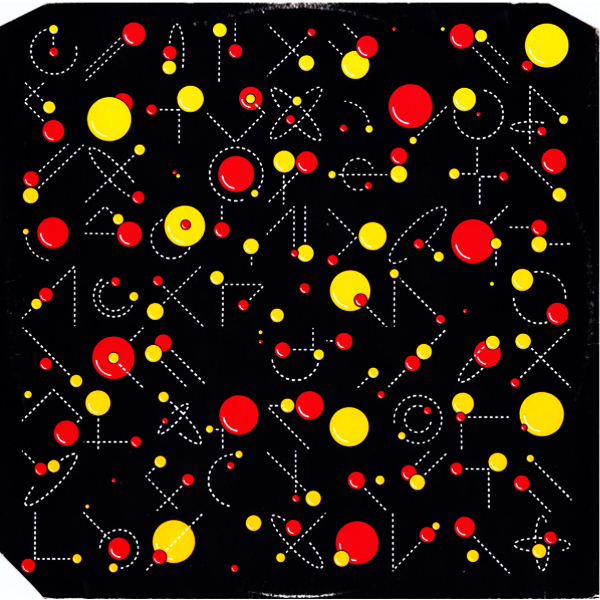

VENUS AND MARS
180g 1LP (MPL/Capitol/UMe)
1. Venus And Mars
2. Rock Show
3. Love In Song
4. You Gave Me The Answer
5. Magneto And Titanium Man
6. Letting Go
1. Venus And Mars – Reprise
2. Spirits Of Ancient Egypt
3. Medicine Jar
4. Call Me Back Again
5. Listen To What The Man Said
6. Treat Her Gently – Lonely Old People
7. Crossroads

- Log in or register to post comments


All these years I've owned a US Capitol original of Venus & Mars. It's never been a sonic favorite of mine - all that reverb, all that compression, and on top of that my copy was a noisy one. I was never motivated to replace it.
Fairly recently, inspired by its description in the McCartney Legacy Vol 2 book, I sought out the "Letting Go" 45rpm single. All the reverb is gone, and all the compression. It's wonderful - could have fit in easily on a previous solo album.
So when I heard about the Venus & Mars 50th reissue, and some good reviews, I took a chance.
It was worth it! Since it's a remaster, the reverb is still with us, but now there are dynamics. It's a totally different sonic presentation compared to my original. It's SO good, I find it unfortunate that they chose to have a digital step rather than go AAA all the way. An all-analog 50th would have been definitive.
But, if all you own is that original, this is a no-brainer pickup.

Any feedback on how this new version compares to the 2014 reissue, Paul McCartney Archive Collection (Hear Music – HRM-35653-01) ?
